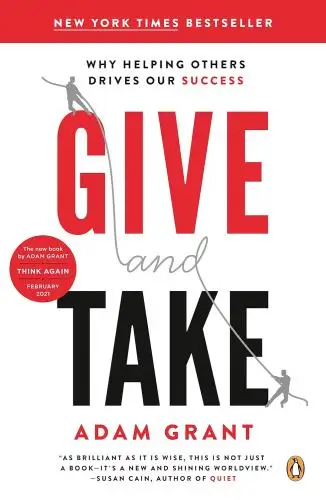
Give and Take
A Revolutionary Approach to Success
What's it about?
Give and Take is a fascinating exploration of the dynamics of success, focusing on the concept of reciprocity in the workplace and in life. Grant argues that givers - those who help others without expecting anything in return - are often the most successful individuals, debunking the myth that takers always come out on top. Filled with real-life examples and actionable advice, this book will change the way you approach relationships and work.
About the Author
Adam Grant is a highly influential organizational psychologist known for his best-selling books "Give and Take" and "Originals". He is recognized for his fresh perspectives on success, motivation, and creativity in the workplace. Grant's writing style is engaging and thought-provoking, as he challenges traditional notions of leadership and productivity. He explores the power of collaboration, generosity, and original thinking, offering valuable insights for both individuals and organizations striving for innovation and success.
10 Key Ideas of Give and Take
Become a Discriminating Giver
Focus your giving efforts on people who appreciate it and can benefit from it the most.
Avoid overextending yourself to takers who may exploit your generosity.
This approach ensures that your giving has the most impact and sustains your ability to help others without burning out.
Learn DeeperIdentify the Takers: Pay attention to how people react when you offer help. Takers often accept help without showing gratitude or reciprocating. Make a mental note of these individuals and prioritize your giving elsewhere.
Seek Out Appreciators: Look for individuals who express gratitude and are likely to pay it forward. These are the people who value your help and are more likely to create a positive ripple effect with your generosity.
Set Boundaries: It's important to know your limits. Offer help when you can, but don't be afraid to say no if you're overextended. Setting boundaries ensures you can continue to give without facing burnout.
Offer Help Strategically: Think about the impact of your help. Sometimes, offering advice or mentorship can be more valuable than financial assistance. Tailor your help to what the person truly needs and what you're best equipped to give.
Reflect on Your Giving: Regularly take time to reflect on your giving experiences. Consider what went well and what could be improved. This reflection will help you become a more effective and discriminating giver over time.
- Example
If you notice a coworker consistently takes credit for collaborative work without acknowledging others' contributions, they might be a taker. In future projects, you might choose to invest your time and resources in team members who value and recognize collective efforts.
- Example
Imagine you volunteer at a local non-profit and see direct results from your efforts, such as increased community engagement or successful fundraising events. This positive feedback loop is a sign that your contributions are valued and making a difference, encouraging you to continue supporting this cause.
Seek Other Givers
Build networks with fellow givers rather than takers or matchers.
Givers tend to support each other, creating a positive feedback loop of generosity.
This environment fosters mutual aid, collaboration, and a culture where everyone feels encouraged to contribute and help.
Learn DeeperIdentify Givers in Your Network: Start by analyzing your current network. Think about the people who have offered you help without expecting anything in return. These are your givers. Make an effort to strengthen these relationships.
Be a Giver Yourself: To attract more givers into your life, practice generosity. Offer your help to colleagues and friends without keeping score. This could be as simple as sharing knowledge, providing support on a project, or making an introduction.
Create or Join Communities of Givers: Look for or establish groups, both online and offline, that are centered around mutual aid and support. This could be professional networks, interest-based clubs, or volunteer organizations.
Share Success Stories of Giving: When you or someone else benefits from a giving act, share the story. This not only recognizes the giver but also promotes a culture of generosity within your network.
Set Boundaries to Protect Your Generosity: While being a giver is beneficial, it's also important to set boundaries to avoid burnout. Learn to say no when necessary, and prioritize where your help will have the most impact.
- Example
Imagine you're part of a local business networking group. You notice a new member struggling to make connections. Without being asked, you introduce them to several key contacts that could benefit their business. This act of generosity can help establish a relationship with a fellow giver.
- Example
You're working on a project at work and realize a colleague has unique expertise that could significantly contribute. Even though they're not part of your team, you offer to help them with one of their own projects in exchange for their insight. This fosters a collaborative environment and strengthens your network of givers.
Master the Art of Asking
Don't be afraid to ask for help when you need it.
Being a giver doesn't mean you should never seek assistance.
Asking for help not only allows you to receive support but also opens the door for others to feel comfortable seeking help from you, fostering a culture of reciprocity and trust.
Learn DeeperIdentify the Right Moment: Choose a moment when the person you're asking for help is not overwhelmed or in a rush. This increases the likelihood of a positive response.
Be Specific in Your Request: Clearly articulate what you need help with. Vague requests can be confusing and harder to fulfill. Specify what you're asking for, why it's important, and how they can assist.
Express Appreciation and Reciprocity: Let the person know you value their help and are willing to reciprocate in the future. This fosters a mutual support system.
Follow Up with Gratitude: After receiving help, follow up with a thank you message or gesture. This reinforces a positive relationship and encourages future exchanges of assistance.
- Example
Imagine you're working on a project at work and you've hit a roadblock with a specific technical skill that a colleague excels in. You could approach them and say, 'I've been struggling with X and I know you're really good at it. Could you spare a few minutes to show me how you tackle it? I'd really appreciate it and am happy to help you out whenever you need it too.'
- Example
Suppose you're organizing a community event and need more hands on deck. You could reach out to friends or community members with a message like, 'Hey! I'm organizing an event for [cause] and could really use some help with [specific task]. I remember you have a knack for this. Would you be willing to lend a hand? I’d be so grateful and of course, I’m here to support you in your endeavors as well.'
Give Credit Generously
Always acknowledge and give credit to others for their contributions.
This practice not only fosters goodwill and respect but also encourages more collaborative and supportive work environments.
Recognizing others' efforts reinforces a culture of giving and appreciation.
Learn DeeperStart Meetings with Acknowledgments: At the beginning of team meetings, take a moment to acknowledge individual or group achievements. This sets a positive tone and encourages a culture of recognition.
Use Public Platforms for Praise: Utilize company newsletters, emails, or social media to publicly acknowledge and thank team members for their contributions. This not only boosts morale but also highlights the importance of giving credit.
Personal Thank You Notes: Make it a habit to send personal thank you notes or emails to colleagues who have helped you. A personalized message can go a long way in showing genuine appreciation.
Encourage Peer Recognition: Implement a peer recognition program where employees can nominate their colleagues for special acknowledgments. This fosters a supportive environment and encourages everyone to notice and appreciate each other's efforts.
Reflect on Contributions During Performance Reviews: Use performance review sessions not just to evaluate but also to highlight and thank employees for their specific contributions over the review period. This reinforces the value of their work and dedication.
- Example
During a project wrap-up meeting, a team leader starts by highlighting each team member's unique contribution to the project's success, mentioning specific tasks or challenges they handled exceptionally well.
- Example
A company implements a 'Kudos' section in their monthly newsletter, where employees who have gone above and beyond are featured. Colleagues are encouraged to submit nominations, detailing the contributions of their peers.
Mentor Effectively
Invest time in mentoring others by providing guidance, feedback, and support.
Effective mentoring involves understanding the mentee's needs, challenges, and goals.
This investment helps build stronger relationships, fosters professional growth, and creates a network of individuals who are likely to pay it forward.
Learn DeeperIdentify Potential Mentees: Look for individuals within your network, workplace, or community who show potential and a desire to grow. This could be someone who has directly asked for guidance or someone you've observed displaying a keen interest in learning.
Schedule Regular Check-ins: Once you've established a mentor-mentee relationship, set up regular meetings or check-ins. This could be weekly, bi-weekly, or monthly, depending on both of your schedules. Use this time to discuss progress, challenges, and next steps.
Offer Constructive Feedback: Provide feedback that is specific, actionable, and positive. Focus on what your mentee is doing well in addition to areas for improvement. This encourages growth while maintaining confidence.
Share Your Own Experiences: One of the most valuable resources you can offer as a mentor is your own experiences. Share stories of your successes and failures, what you learned from them, and how they shaped your career. This can provide invaluable insights and inspiration.
Encourage Networking: Introduce your mentee to other professionals in your field. Encouraging them to build their own network not only aids their professional development but also reinforces the value of paying it forward.
- Example
Example 1: If you're mentoring a young professional in your industry, you might schedule a monthly coffee meeting to discuss their current projects, any challenges they're facing, and strategies for overcoming those challenges. During these meetings, you could share relevant experiences from your own career to illustrate how you've navigated similar obstacles.
- Example
Example 2: For a mentee interested in developing a specific skill, such as public speaking, you could arrange for them to present at a team meeting or local meetup group. Afterward, provide constructive feedback on their performance, highlighting strengths and offering tips for improvement. You could also share your first public speaking experience and how you improved over time.
Deeper knowledge. Personal growth. Unlocked.
Unlock this book's key ideas and 15M+ more. Learn with quick, impactful summaries.
Read Full SummarySign up and read for free!
Give and Take Summary: Common Questions
Experience Personalized Book Summaries, Today!
Discover a new way to gain knowledge, and save time.
Sign up for our 7-day trial now.
No Credit Card Needed

Similar Books

People Skills
Neil Thompson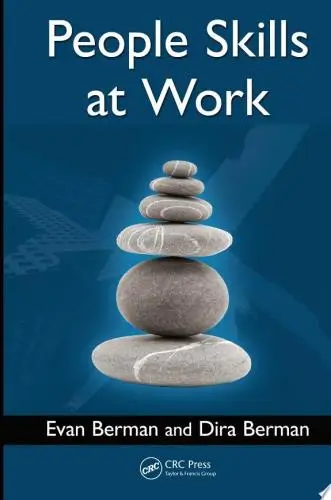
People Skills at Work
Evan Berman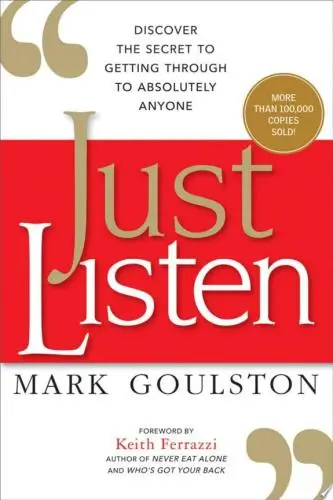
Just Listen
Mark Goulston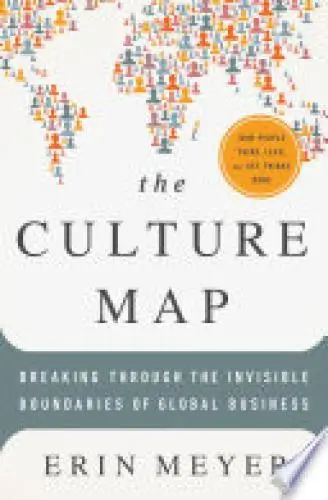
The Culture Map
Erin Meyer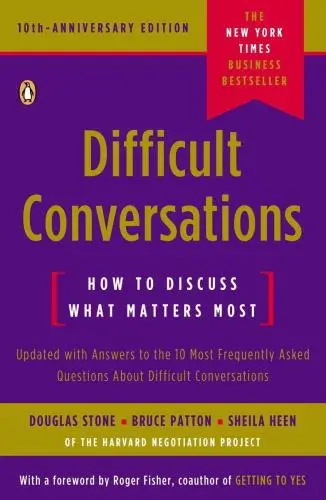
Difficult Conversations
Douglas Stone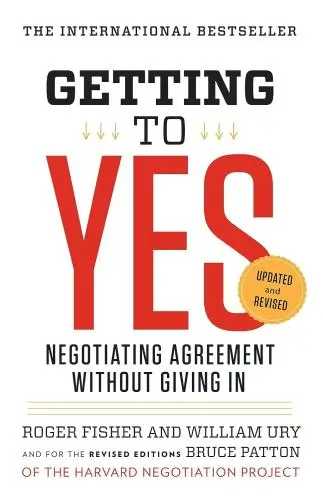
Getting to Yes
Roger Fisher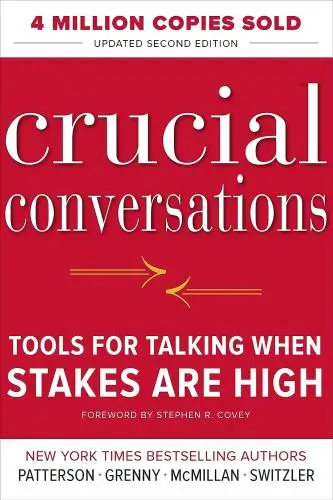
Crucial Conversations
Kerry Patterson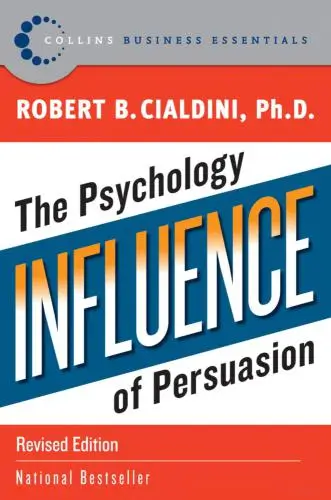
Influence
Robert B. Cialdini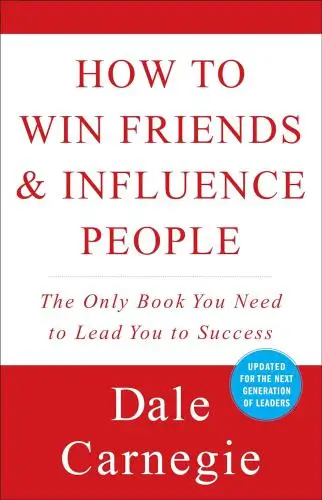
How to Win Friends & Influence People
Dale Carnegie
Never Split the Difference
Chris VossTrending Summaries

Peak
Anders Ericsson
Never Split the Difference
Chris Voss
Smart Brevity
Jim VandeHei
The Psychology of Money
Morgan Housel
The First 90 Days
Michael D. Watkins
Atomic Habits
James Clear
Thinking, Fast and Slow
Daniel Kahneman
The Body Keeps the Score
Bessel van der Kolk M.D.
The Power of Regret
Daniel H. Pink
The Compound Effect
Darren HardyNew Books

Forex Trading QuickStart Guide
Troy Noonan
Comprehensive Casebook of Cognitive Therapy
Frank M. Dattilio
The White Night of St. Petersburg
Michel (Prince of Greece)
Demystifying Climate Models
Andrew Gettelman
The Hobbit
J.R.R. Tolkien
The Decision Book
Mikael Krogerus
The Decision Book: 50 Models for Strategic Thinking
Mikael Krogerus
Fichte
Johann Gottlieb Fichte
Do No Harm
Henry Marsh
